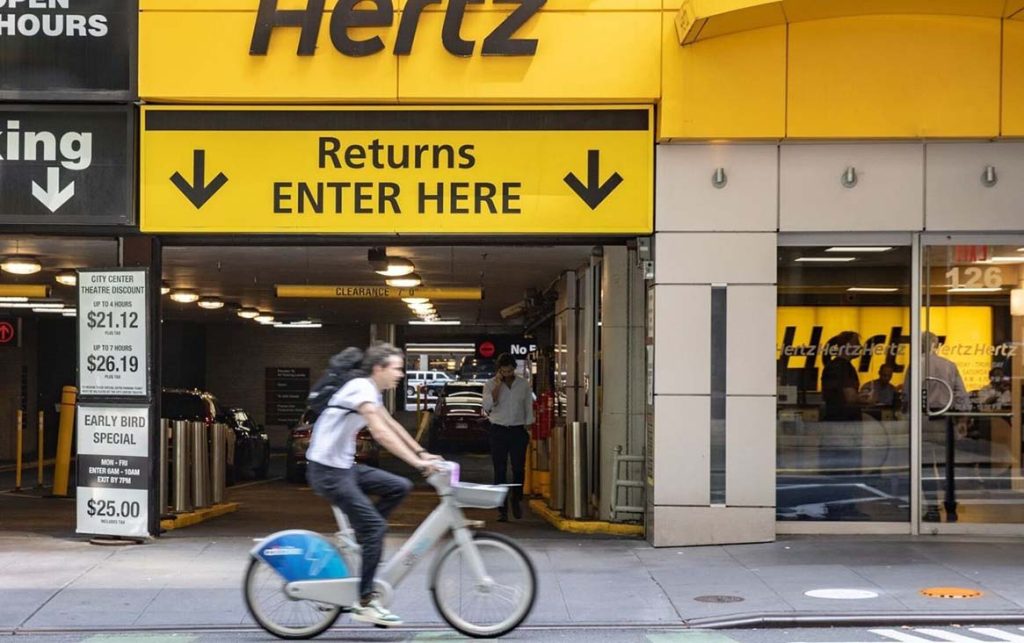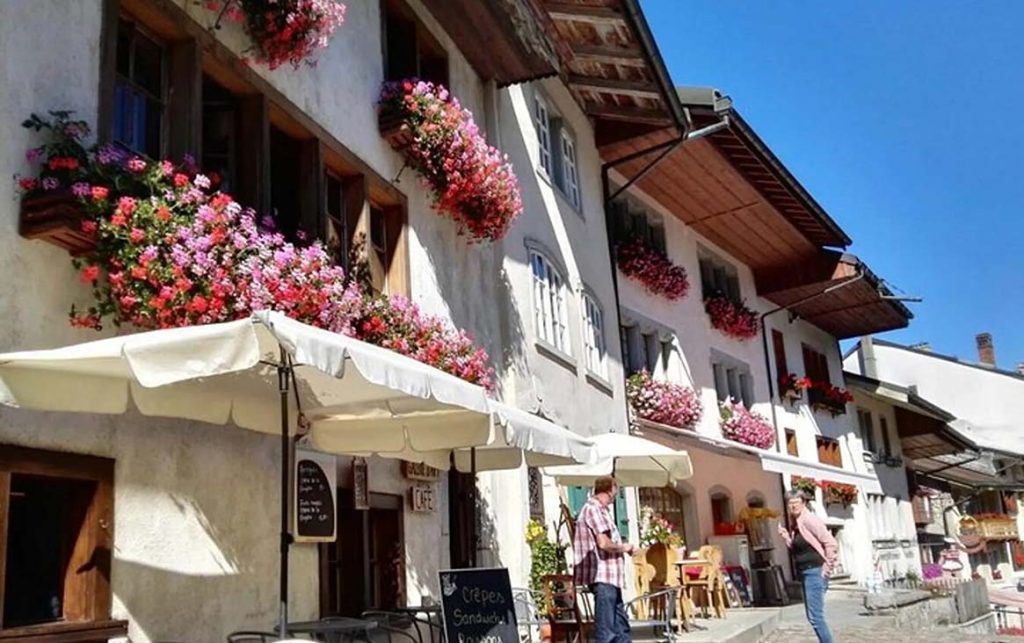Geneva, often referred to as the “Gateway to the Alps,” is not only a stunning city with its iconic lake, international organizations, and historic sites but also a perfect starting point for exploring the surrounding regions of Switzerland and neighboring France. Renting a car in Geneva can be an excellent choice if you want the freedom to explore the picturesque countryside, charming towns, and breathtaking mountain ranges at your own pace. However, before you hit the road, there are several things you need to know to make your car rental experience in Geneva as smooth and enjoyable as possible.
1. Deciding Whether to Rent a Car in Geneva
Do You Need a Car?
Before you rent a car, consider whether you actually need one. Geneva has an excellent public transportation system, including buses, trams, and trains, which can easily take you around the city and to many nearby attractions. If you’re planning to stay within Geneva or take day trips to places like Montreux, Lausanne, or Chamonix, public transport may be more convenient and cost-effective. However, if your itinerary includes exploring the more remote areas of Switzerland, such as the Jura Mountains, the Alpine villages, or the French countryside, renting a car becomes a practical and often necessary option.
Advantages of Renting a Car
- Flexibility: Renting a car gives you the flexibility to travel on your own schedule without being tied to public transport timetables.
- Access to Remote Areas: Many of Switzerland’s most beautiful spots, including hidden hiking trails and scenic routes, are best reached by car.
- Comfort: Having a car can make your trip more comfortable, especially if you’re traveling with luggage, family, or plan to buy local goods.
Disadvantages to Consider
- Parking Costs: Parking in Geneva, especially in the city center, can be expensive and sometimes challenging to find.
- Traffic: Geneva can experience heavy traffic, particularly during rush hours and near the French border.
- Cost: Car rental, fuel, and tolls can add up, so it’s essential to factor these costs into your travel budget.
2. How to Choose the Right Car Rental Company
International Chains vs. Local Providers
In Geneva, you’ll find both international car rental chains (such as Hertz, Avis, Europcar, and Sixt) and local Swiss rental companies. International chains often provide more locations for pick-up and drop-off, a wider selection of vehicles, and the ability to earn loyalty points. However, local providers may offer more competitive pricing, personalized service, and better knowledge of regional driving conditions.

Booking Your Car
Booking your rental car in advance is highly recommended, especially during peak tourist seasons (summer and winter). Booking online typically offers better rates, and you can easily compare prices across different companies. Many car rental websites allow you to filter results based on your preferences, such as vehicle type, transmission (manual or automatic), and additional features like GPS or child seats.
Understanding the Rental Agreement
Before finalizing your booking, carefully read the rental agreement. Pay attention to the following:
- Insurance Coverage: Most rental agreements include basic insurance, but you may want to consider additional coverage, such as Collision Damage Waiver (CDW) or Theft Protection, to reduce your liability in case of an accident or theft.
- Mileage Limits: Some rental companies offer unlimited mileage, while others may charge extra if you exceed a certain limit.
- Fuel Policy: Most companies operate on a “full-to-full” policy, meaning you should return the car with a full tank of fuel. Check where the nearest gas station is located near the drop-off point.
- Cross-Border Travel: If you plan to drive into neighboring countries like France or Italy, ensure that your rental agreement allows cross-border travel and check if additional fees apply.
3. What You Need to Rent a Car in Geneva
Driver’s License Requirements
To rent a car in Geneva, you must have a valid driver’s license. If your license is issued in a non-European country, it’s advisable to carry an International Driving Permit (IDP) alongside your national license. The IDP translates your license into multiple languages, which can be helpful if you’re stopped by the police. Note that some rental companies may require an IDP, especially for non-EU licenses, so it’s wise to check with the rental agency beforehand.
Minimum Age and Driving Experience
The minimum age to rent a car in Switzerland is typically 21 years old, though some rental companies may set the minimum age at 25 for certain vehicle categories. Additionally, most companies require drivers to have held a valid license for at least one or two years. Younger drivers under 25 may also be subject to a “young driver surcharge,” which can add to the rental cost.
Credit Card for Payment and Deposit
When picking up your rental car, you’ll need a credit card in the primary driver’s name. This card will be used to cover the rental fee and a security deposit, which is held as a guarantee and will be released upon the safe return of the vehicle. Ensure that your credit card has sufficient available credit to cover the deposit, which can range from CHF 300 to CHF 1,500, depending on the car and rental company.
4. Picking Up and Returning Your Rental Car
Car Rental Locations in Geneva
Geneva has several convenient locations where you can pick up and drop off your rental car:
- Geneva Airport (GVA): The most popular location for car rentals, especially for international travelers. The airport has rental desks for major car rental companies in both the Swiss and French sectors. Make sure you’re in the correct sector when picking up your car.
- Geneva Cornavin Train Station: Centrally located, this is a good option if you’re staying in the city center. Rental desks are located near the station, providing easy access.
- City Center Locations: Some rental companies have offices in Geneva’s city center, which can be convenient if you prefer to pick up your car after spending a few days exploring the city.
Inspecting the Vehicle
When picking up your car, take the time to inspect the vehicle thoroughly. Check for any existing damage, such as scratches, dents, or chipped windows, and ensure that these are documented in the rental agreement. It’s a good idea to take photos or a video of the car before you drive off. Make sure you’re familiar with the vehicle’s controls, including the lights, wipers, and fuel type (most cars in Switzerland run on diesel or unleaded petrol).
Returning the Car
When returning the car, try to arrive at the drop-off location with plenty of time before your flight or train. Refill the fuel tank if required and keep the receipt as proof. Inspect the car once more for any damage and take photos if necessary. Ensure that the rental agent inspects the car in your presence and provides you with a final receipt showing that the vehicle was returned in good condition.
5. Driving in Geneva: What to Expect
Driving Rules and Regulations
Switzerland has strict driving laws that you must adhere to:
- Speed Limits: The speed limit is 50 km/h (31 mph) in urban areas, 80 km/h (50 mph) on rural roads, and 120 km/h (75 mph) on highways. Speed cameras are common, and fines for speeding are steep.
- Seat Belts: Seat belts are mandatory for all passengers, both in the front and back seats.
- Mobile Phones: It’s illegal to use a mobile phone while driving unless you have a hands-free system.
- Alcohol Limits: The legal blood alcohol limit is 0.05%, lower than in many countries. It’s best to avoid drinking if you plan to drive.
Road Signs and Markings
Swiss road signs are generally straightforward and use international symbols. Speed limits, direction signs, and warnings are clearly marked. One thing to note is that many signs are in French, but they are easy to understand even if you don’t speak the language. Watch out for blue signs indicating highways and green signs for main roads.
Tolls and Vignette
Switzerland requires a vignette (toll sticker) to use its highways. If your rental car does not already have a vignette, you’ll need to purchase one at the border, post office, or gas station. The vignette costs CHF 40 and is valid for one calendar year. Failing to display a vignette can result in a hefty fine.
Parking in Geneva
Parking in Geneva can be challenging, especially in the city center. Look for blue zone parking, which allows parking for up to 1.5 hours with a blue parking disc available from the police or gas stations. White zones are metered and have varying time limits. Be mindful of red zones, as these are reserved for residents or permit holders only. Always check parking signs carefully to avoid fines.
6. Exploring Beyond Geneva by Car
Day Trips from Geneva
Renting a car opens up a world of possibilities for day trips from Geneva. Here are some popular destinations:
- Montreux and the Lavaux Vineyards: A scenic drive along Lake Geneva’s shoreline brings you to Montreux, famous for its jazz festival and the nearby Château de Chillon. Don’t miss the Lavaux vineyards, a UNESCO World Heritage site, where you can stop for a wine tasting with stunning lake views.
- Chamonix-Mont-Blanc: Cross the border into France and drive to Chamonix, the gateway to Mont Blanc, Europe’s highest peak. Enjoy breathtaking mountain views and explore the charming Alpine town.
- Gruyères: Visit the medieval town of Gruyères, known for its cheese. Tour the Gruyères Castle and indulge in a traditional Swiss fondue at a local restaurant.

Road Conditions and Weather Considerations
Switzerland’s roads are well-maintained, but driving conditions can vary depending on the season. In winter, snow and ice can make driving challenging, especially in the mountains. Ensure your rental car is equipped with winter tires, and consider renting snow chains if you plan to drive in high-altitude areas. In summer, mountain roads can be narrow and winding, so take extra care.
Crossing Borders
Geneva’s proximity to France makes it easy to take cross-border trips. However, if you plan to drive into France or Italy, ensure that your rental car has the necessary permits and that you are aware of different traffic regulations and tolls in these countries. Some rental companies may charge extra for cross-border travel, so confirm this when booking your car.
7. Final Tips for Renting a Car in Geneva
Plan Your Route
Before setting off, plan your route using a GPS or a reliable map app. This will help you avoid getting lost and ensure that you reach your destination efficiently. Keep an eye on the traffic updates, especially if you’re driving during peak hours.
Budget Wisely
When budgeting for your car rental, consider additional costs such as fuel, parking, tolls, and insurance. Switzerland is known for its high cost of living, so be prepared for these expenses.
Consider Alternative Transportation
For short trips or if you’re staying within Geneva, consider using public transportation or taxis. Geneva’s public transport system is efficient, clean, and covers most tourist areas.
Stay Safe
Always prioritize safety. Observe speed limits, follow road signs, and don’t drink and drive. Keep a first aid kit in the car, which is mandatory in Switzerland, and familiarize yourself with the emergency numbers (112 for general emergencies, 117 for police, and 118 for fire services).
Renting a car in Geneva offers unparalleled freedom to explore one of Europe’s most scenic regions at your own pace. With careful planning and an understanding of local driving rules, you can make the most of your Swiss adventure. Whether you’re planning a relaxing drive along Lake Geneva, a mountain escape to Chamonix, or a wine-tasting tour in the Lavaux vineyards, having a car will enhance your experience and allow you to discover the hidden gems of Geneva and beyond.



